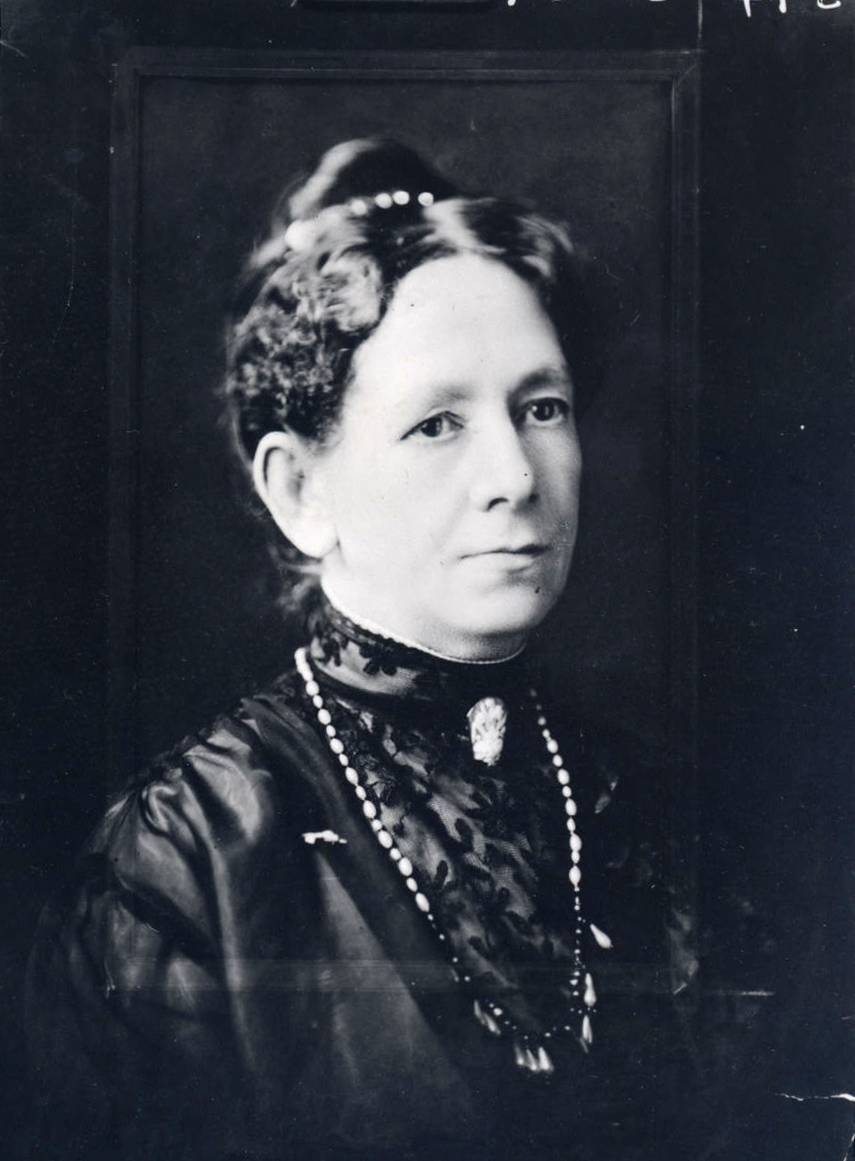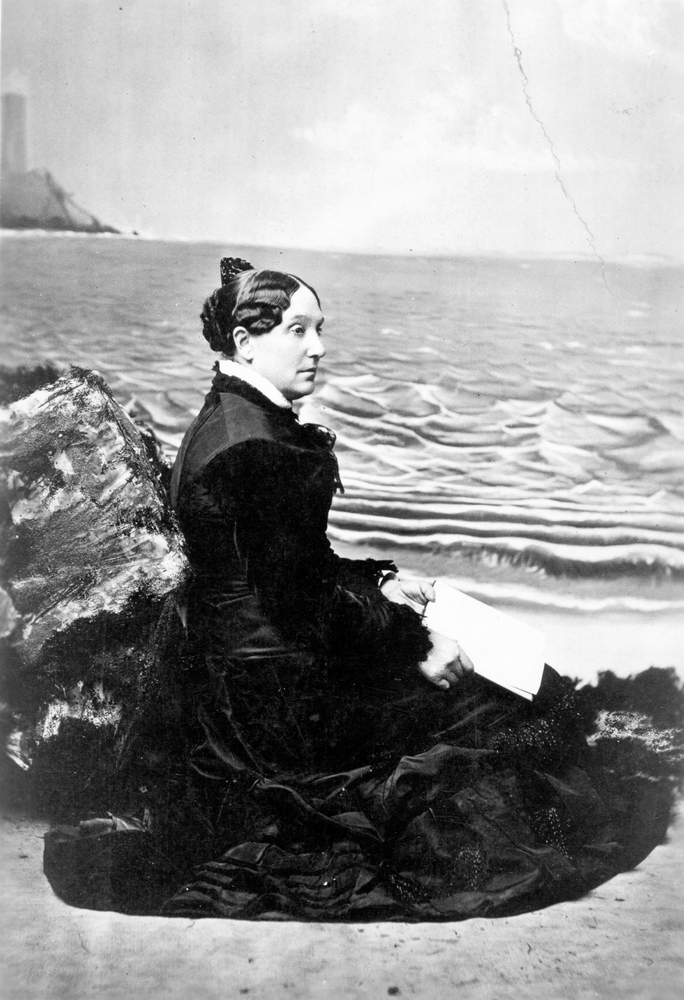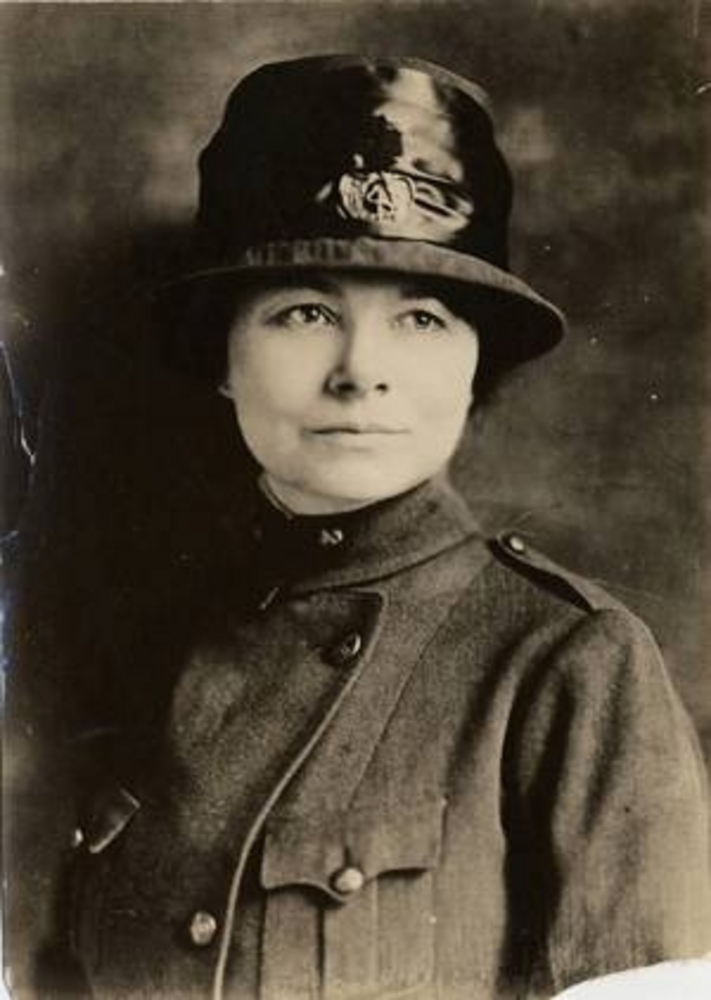Mattie Cone Sleeth was a significant force for change in Oregon during the early decades of the twentieth century. A devoted minister’s wife, she arrived in Portland with her family in 1903 and established herself as a leader of the Oregon Woman’s Christian Temperance Union (WCTU). She was an ardent supporter of woman suffrage, a licensed local preacher in Oregon for the Methodist Episcopal Church, and among the first woman jurors in the state.
Born in 1852 in Delaware, Ohio, Sleeth was a child of the midwestern frontier, the last of eight children to Luther Cone Sr. and Margaret Obershimer Cone. The family moved to Lawrence, Kansas, shortly before the Civil War for the opportunities offered by the newly organized territories of the Great Plains and Far West frontiers. A supporter of Kansas woman suffrage, Margaret Cone, a Methodist convert, instilled in her children a strong sense of religion and temperance and a respect for education.
In August 1863, Sleeth and her mother, sister, and brother survived the Quantrill Raid, an attack by William Quantrill's Raiders on the abolitionist town of Lawrence, Kansas. One of the bloodiest events of the Civil War, hundreds of civilians were killed and the town was set on fire. By the end of the war, Sleeth’s father had been killed in battle; her brother Leander, a Union soldier, never returned from the Andersonville prison in Georgia.
In 1872, Mattie Cone completed two years of the classical curriculum at the University of Kansas before marrying Asa Sleeth, the minister of the town's Methodist church and a respected frontier theologian, author, lawyer, inventor, and horticulturist. Together, they rode the circuit, ministering to settlers in Kansas, Nebraska, and Iowa. Their son Dana was born in 1878.
Mattie Sleeth’s rural past led her to an urban future when Dana Sleeth, now a journalist, moved to Portland in 1903 and encouraged his parents to join him. They bought a modest house in Portland. For Asa Sleeth, Oregon was a place to retire and explore the area around the family farm in Scappoose, rural land that they owned later.
Mattie Sleeth became a supporter of the Oregon WCTU and woman suffrage, two issues she knew well from her youth. From 1903 to 1919, Mattie Sleeth was an active lecturer and organizer for the WCTU’s Evangelistic Department, carrying the temperance gospel and the cause of woman suffrage to Oregon counties. She spoke in Grange Halls, churches, and sitting rooms and met with people recently arrived from the Midwest. She reported in her diary that she often "hunted up" people from Nebraska, Iowa, or Kansas.
In her travels, Sleeth was given the pulpit, a platform denied state and national suffragists who opposed temperance. Local ministers frequently offered her the evening services, and she spoke on prohibition and woman suffrage to men and women who would not listen to other suffragists. The “good versus evil” arguments of religious prohibition were only part of her lectures; she also traced the development of Oregon legislation and often analyzed the national status of those campaigns.
Oregon women won the vote in 1912, and statewide prohibition went into effect in 1916. In 1915, Sleeth was elected president of the Multnomah County WCTU; in 1918 and 1919, she was elected president of the Oregon WCTU. Her son Dana Sleeth also enjoyed success during the Progressive Era as the editor of the Portland News, the Los Angeles Record, and the Seattle Star.
In 1919, Mattie Sleeth joined the executive board of the national WCTU. The next year, the Methodist Episcopal Church issued her a local preacher's license. In recognition of her efforts to pass the 1921 women’s jury bill, Sleeth received her jury certificate in 1922.
Mattie Cone Sleeth died in 1934, only six months after the repeal of the Eighteenth Amendment. Asa Sleeth died in 1935.
-
![Photo by C. Elmore Grove]()
Mattie Cone Sleeth, c. 1912.
Photo by C. Elmore Grove Courtesy Oreg. Hist. Soc. Research Library, 015012
Related Entries
-
Abigail Scott Duniway (1834-1915)
Outspoken and often controversial, Abigail Scott Duniway is remembered …
-
Esther Clayson Pohl Lovejoy (1869-1967)
Physician Esther Clayson Pohl Lovejoy took an active and significant ro…
-
Woman Suffrage in Oregon
The campaign to achieve voting rights (also called suffrage or the fran…
Related Historical Records
Map This on the Oregon History WayFinder
The Oregon History Wayfinder is an interactive map that identifies significant places, people, and events in Oregon history.
Further Reading
Papers of Mattie Cone Sleeth, Sleeth Family Collection. Lewis & Clark College Special Collections and Archives, Portland, Oregon.
Interviews with Martha Sleeth Kogan and Marshall Sleeth (grandchildren of Mattie Cone Sleeth), by Janet Asteroff, 1978-1981.
Bordin, Ruth. Woman and Temperance: The quest for power and liberty, 1873-1900. Philadelphia, Penn.: Temple University Press, 1981.
MacColl, E. Kimbark. The Shaping of a City: Business and Politics in Portland, 1885-1915. Portland, Ore.: The Georgian Press, 1976.



